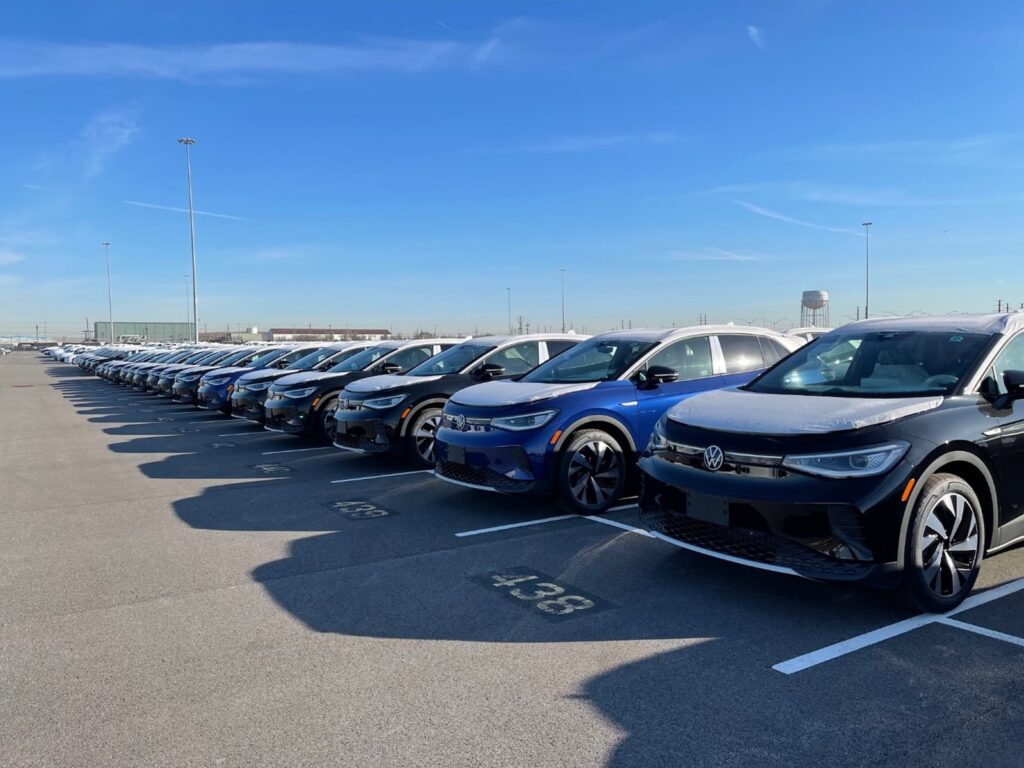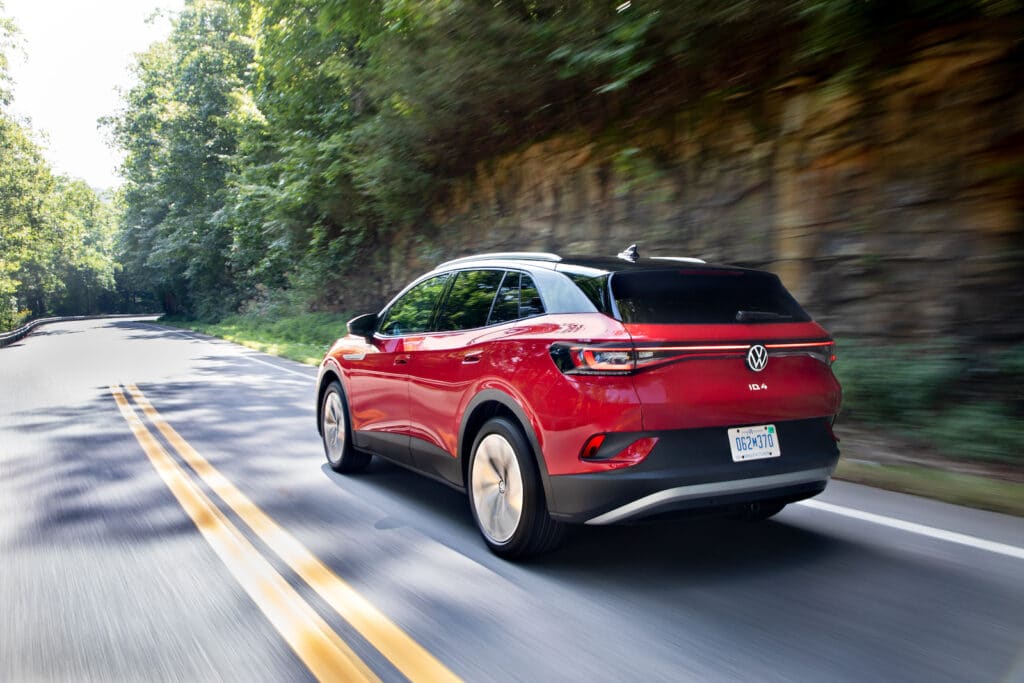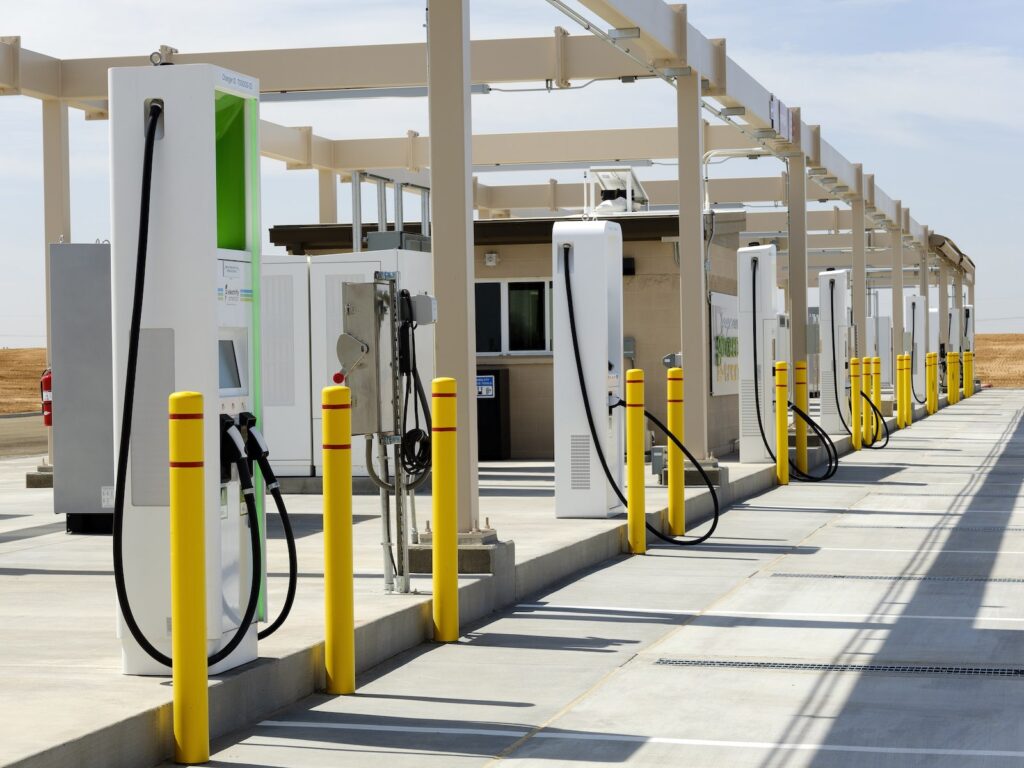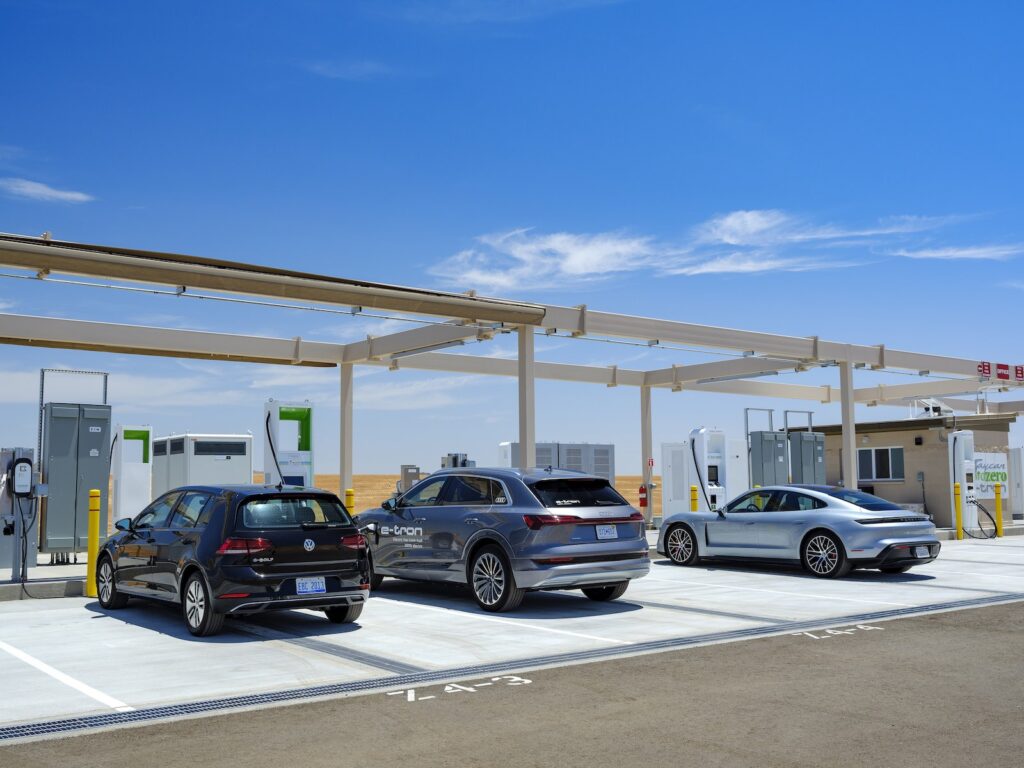Need to charge your ID.4? Look no further than your VW dealer.

More than 600 Volkswagen dealers nationwide have become electric vehicle hubs, the result of a $20 million investment by Volkswagen of America. The results were announced Thursday as part of the automaker’s “Network Readiness Co-Op Program.”
At its core, the program is meant to establish a 50-state dealership network EV infrastructure, by taking advantage of one that’s already up and running. Volkswagen dealers have added 23,490 kWh of charging capacity, the company said in a statement.
Beyond that, more than 1,260 EV service technicians have been trained, as have dedicated EV specialists, in an effort to enhance the sales experience nationwide.
“It’s our dealership partners who bring their communities into electric vehicles,” said Scott Keogh, president and CEO of Volkswagen Group of America, in a statement. “We’re dedicated to fully support them.”
Part of Volkswagen’s EV sales effort
The program is essential in supporting Volkswagen sales as the industry converts to electric propulsion. Demand for Volkswagen’s first product in their new EV line-up, the ID.4, rose 4.8% to 6,049 units in the third quarter of 2021, up from 5,756 units in the second quarter.

Not surprisingly, Keogh said that nine out of 10 Volkswagen ID.4 customers are first-time EV buyers, so their experience at VW showrooms is crucial to the brand’s long-term success. To ensure their ongoing experience is positive, Volkswagen launched the EV Technician Retention Program, which aims to increase training, retain its skilled technicians, and help recruit new techs adept at handling EVs.
A growing part of VW’s sales
Still, EVs are still a small part of the picture, with the ID.4 accounting for 2.4% of Volkswagen’s 509,863 U.S. sales through the third quarter of this year. That’s somewhat less than total U.S. EV sales, which accounted for 3.6% of vehicle sales in the second quarter of this year up from 1.8% in Q2 2020. But the buyers who have opted for the ID.4 are in it for the long haul. Volkswagen says that more than 85% have enrolled for 3 years of unlimited charging at Electrify America DC Fast Chargers.
Needless to say, dealers are encouraged.

“I believe with the commitment Volkswagen has put forth to electrification along with the service and support the dealer body will offer, Volkswagen will be the top choice on consumers’ shopping list,” said Tom McMenamin, Volkswagen National Dealer Chairman and Dealer Principal of Toms River Volkswagen in Toms River N.J. “I am very excited for the electric future with Volkswagen.”
A turning point for auto dealers
The oncoming tide of EVs is affecting every part of a car dealer’s business, necessitating investment, training, and reordering of profits according to a report by McKinsey.
Sales people need to be able to answer consumer’s questions about EVs. The service department needs specialized tools and equipment, and technicians will need to know how to safely service high-voltage powertrains.
The effect on dealership sales model
And with Tesla’s direct sales model providing the template for new EV startups, dealers have far less pricing flexibility. Tesla’s online sales model has trained consumers to expect price transparency. With more EVs coming from traditional OEMs, the pressure to improve online sales experience, or possibly even sell online, will only increase.

According to McKinsey’s report, 16 states prohibit direct sales of automobiles, while another 12 states have made an exception for Tesla. And the picture isn’t clear on how profitable used EVs will be. Currently, they depreciate heavily due to consumer concerns about long-term battery durability. Longer term, that could change, but the timeline is uncertain.
A key changing service picture
Currently, service work such as brake service, tire rotation, and suspension repair, require going to a dealer. But over-the-air updates do not. EVs also have fewer parts, which will likely impact after-sales service, a key profit center. But it’s not all bad. While EVs may require fewer trips to the dealer, when they do need service, the jobs are more complex.
Consider advanced driver-assistance systems, which are becoming more intertwined with the driveline than ever before. The same is true of infotainment systems. The increased time required to repair these items will increase revenue per visit, even there are fewer visits. That said, when it comes to buying accessories, EV buyers spend 40% less on aftermarket parts when compared to ICE buyers. The picture looks better for the dealer’s finance office. EVs are more expensive to buy, and uncertainty over their performance could lead first-time buyers to buy additional F&I products, increasing dealer revenue.
Given that EVs are changing dealer profitability, and necessitating huge investments in equipment and personnel, Volkswagen’s investment in its dealer body is no doubt a welcome relief to dealers battered after 18 months of Pandemic-infused uncertainty.








Imagine what car sales would be if you had to get your gas at the dealer.
Imagine how nice it would be if you could wake up every morning and find your “tank” full! That’s the situation with most EV owners. About 80-90% charge at home or office and never have to hit the equivalent of a gas station.